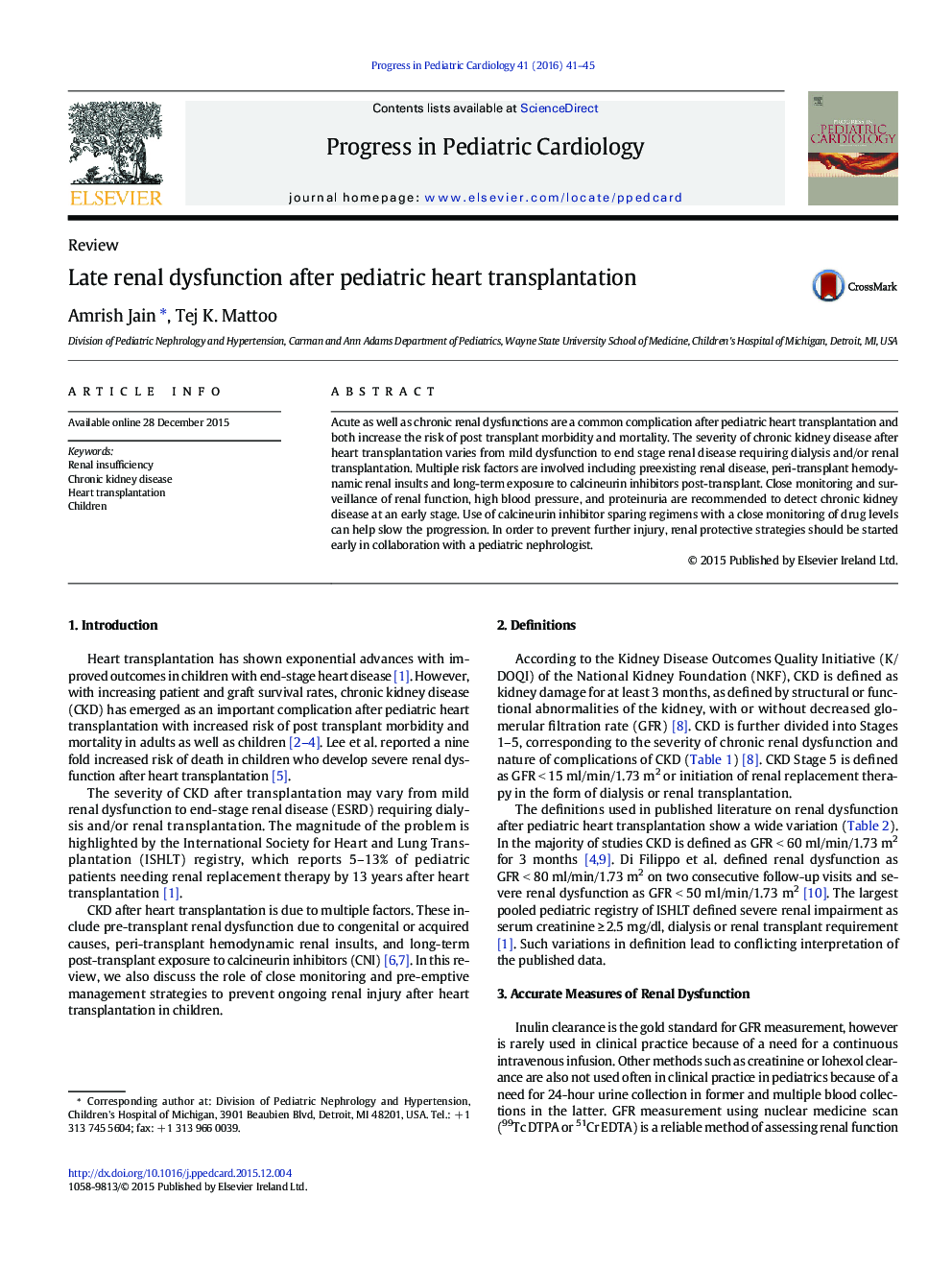| Article ID | Journal | Published Year | Pages | File Type |
|---|---|---|---|---|
| 3007272 | Progress in Pediatric Cardiology | 2016 | 5 Pages |
Abstract
Acute as well as chronic renal dysfunctions are a common complication after pediatric heart transplantation and both increase the risk of post transplant morbidity and mortality. The severity of chronic kidney disease after heart transplantation varies from mild dysfunction to end stage renal disease requiring dialysis and/or renal transplantation. Multiple risk factors are involved including preexisting renal disease, peri-transplant hemodynamic renal insults and long-term exposure to calcineurin inhibitors post-transplant. Close monitoring and surveillance of renal function, high blood pressure, and proteinuria are recommended to detect chronic kidney disease at an early stage. Use of calcineurin inhibitor sparing regimens with a close monitoring of drug levels can help slow the progression. In order to prevent further injury, renal protective strategies should be started early in collaboration with a pediatric nephrologist.
Related Topics
Health Sciences
Medicine and Dentistry
Cardiology and Cardiovascular Medicine
Authors
Amrish Jain, Tej K. Mattoo,
